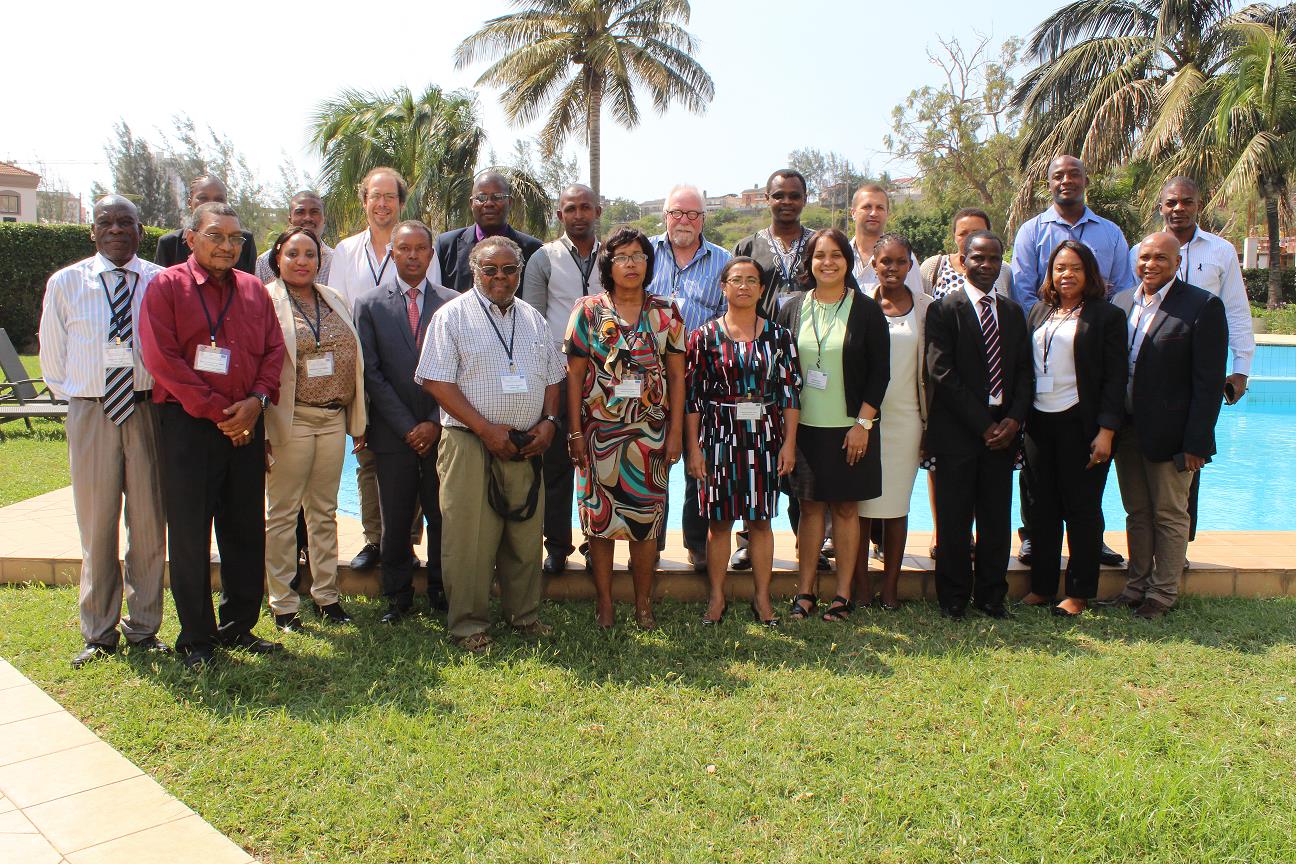Press Release - Southern Africa Regional Consultative Workshop on Environmental Management for Aquaculture

The consultative workshop on Aquaculture Environmental Management for the Southern Africa Region was organised by the African Union Inter-African Bureau for Animal Resources (AU-IBAR) in collaboration with the NEPAD Planning and Coordinating Agency (NPCA) and the Southern Africa Development Community (SADC) with support from the European Union.
The overall focus of this workshop was to embark upon the development of appropriate regional and continental frameworks on environmental management for sustainable aquaculture development that shall provide the basis for sectoral policy and management. The specific objectives of this workshop therefore were to (i) inform and enable participants to apply the principles of ecosystems approach to aquaculture (EAA) at the sectoral level; (ii) identify key components to develop and implement appropriate mechanisms for specific regional and national environmental management of aquatic animal production systems; (iii) formulate draft regional frameworks for environmental management for commercial aquaculture development and zonation for Southern African - region; and (iv) help the SADC region to validate the draft Aquaculture Strategy that incorporates and promotes EAA approaches.
The meeting was attended by participants from 11 Southern African countries which include Angola, Botswana, Comoros, Lesotho, Madagascar, Malawi, Mozambique, Seychelles, South Africa, Swaziland and Zimbabwe. Other participants were from the FAO, Research and Academic Institutions in Southern Africa and the Private Sector.
The meeting was officially opened by the Permanent Secretary of the Ministry of Sea, Inland Waters and Fisheries of the Government of Mozambique, Dr. Narci Nuro de Premegi on behalf of the Minister of State for Sea, Inland Waters and Fisheries, Honourable Agostinho Salvador Mondlane on the 25th February, 2016. Welcome messages and statements of support were also made by AU-IBAR, Mr. Obinna Anozie on behalf of the Director, Prof. Ahmed El-Sawalhi, SADC, Dr. Motseki Hlatshwayo on behalf of the Executive Secretary, H.E. Dr Stergomena Lawrence Tax, and South West Indian Ocean Fisheries Commission (SWIOFC) and FAO represented by Mr. Aubrey Harris.
The opening session was followed by presentations on the continental Policy Framework and Reform Strategy for Fisheries and Aquaculture and the SADC Fisheries Protocol. Status of aquaculture in Southern Africa was also discussed, based on the SWOT analyasis which was made udirng the development of the draft SADC Aquaculture Strategy. Several other presentations setting the scene were made; outlining the nature of nature in terms of resources use, inputs and outputs as well as impacts; stauts of natural resources and effects of climate change on prospects for aquaculture development in the Region; Ecosystem approach to aquaculture and implications for planning sustainable aquaculture development. Private sector and researchers were also given a chance to share experiences on progressive environmental changes and effects on operations, production and returns.
AU-IBAR and SADC Secretariat also provided an overview of international and regional policies and regulations on environmental management for aquaculture. This was followed by presentation of national environmental management startegies and their status of implementation in the Southern African countries. There were also dedicated discussions on environmental impact assessment in aquaculture, looking at its components and processes, including issues of site selection and estimation of carrying capacities. Through group discussions priority components to develop and implement appropriate mechanisms looking at ecosystem and bio-security and socio-economic issues were identified and will be used as framework for developing the regional guideline for aquaculture environmental management, which is also in line with the PFRS and SADC Protocol on Fisheries.
Following the extensive discussions and provision of inputs, the meeting validated draft SADC Aquaculture Strategy, an identified the development of the regional framework for environmental management for commercial aquaculture development and zonation in Southern Africa as one of the regional programmes to implemented in the Region.
The meeting was informed of the upcoming World Aquaculture Conference to be held in Cape Town, South Africa, 26-30 June 2017, under the theme “sustainable aquaculture- new frontiers for economic growth” (More information here). The SADC Secretariat and FAO indicated that they will host a joint site event at this meeting and encouraged AU-IBAR to also consider doing the same.
The meeting recommended that AU-IBAR in partnership with SADC Secretariat should ensure that the draft Aquaculture Environmental Management framework is finalized soon for validation at the next SADC Aquaculture Working Group meeting to be supported by AU-IBAR proposed for June 2016 in Gaborone, Botswana or Seychelles. Other workshops proposed should include the development of regional guidelines for aquaculture best management practices and other outputs or products identified in the draft SADC Aquaculture Strategy that will enhance harmonization and ultimately domestication of the SADC Protocol on Fisheries. The meeting also recommended that the draft SAC Aquaculture Strategy should be send to the SADC Technical Committee on Fisheries for consideration. The meeting further recommended that proceedings of this workshop should be prepared and published so that the publication can be used as reference material.
Members recognized and commended both AU-IBAR and SADC Secretariat for the workshop, and encouraged better coordination of this kind of work continentally and regionally, in order to ensure that countries benefit fully from this kind of interventions and supported accordingly in order to ensure domestication of continental and regional instruments in respective Member States. AU-IBAR and SADC Secretariat thanked everyone for making time to participate in this important workshop, and also thanked development partners present, FAO and WorldFish for their continued support.
